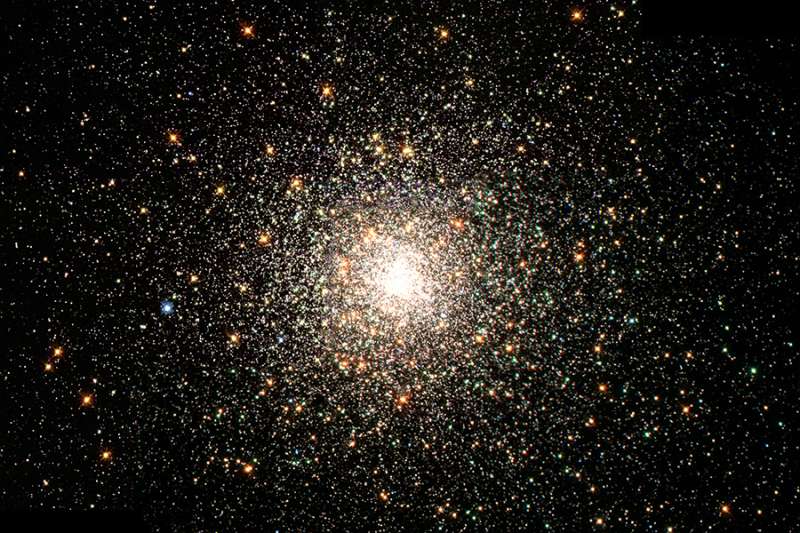A Thomistic philosopher, an evolutionary biologist, and a Harvard astronomy professor walk into a bar. Well, not a bar.
But they did walk into a Washington, D.C. symposium this week, at which graduate students, professors, religious sisters, and other curious Catholics discussed highly technical scientific questions over bourbon and pecan pie, late into the night.
The three-day conference, co-sponsored by the Thomistic Institute and the Society of Catholic Scientists, brought together nearly 70 professors and graduate students from Princeton, Harvard, Yale, MIT, the University of Chicago, and other universities across the country to examine the intersection of faith and science.
“The typical contemporary view assumes that there is going to be some deep tension between faith and science. From our perspective that's an illusion. There is not really a conflict there, but it does require you to work carefully through some of these issues,” said Fr. Dominic Legge, OP, the Thomistic Institute’s director.
The idea behind the conference was to bring high-level scientists together with some very good philosophers and theologians to talk through questions about integrating specialized scientific research with a broadly grounded philosophical perspective, Legge told CNA.
Scholars presented lectures on neuroscience, physics, cosmology, biology, and philosophy. The Thomistic Institute plans to post lectures from the symposium on iTunes.
Dr. Karin √ñberg teaches astrophysics at Harvard University, where she researches the interstellar medium and star formation. √ñberg seeks to discover “how chemistry and physics interact during star and planet formation to shape the bulk and organic compositions of nascent planets.” She is also one of the founders of the Society of Catholic Scientists.
At the Thomistic symposium, Öberg lectured about exoplanets and the possibility of extraterrestrials.
“The big scientific development that has happened in the past 10-20 years is that we have found out that planets are very common around other stars. Basically, every star that you see in the sky is its own solar system, so that's a change in the cosmology that we live in. This obviously for most people begs the question, 'Are they also living systems like our earth?'”
√ñberg told CNA that it would be “super cool” to discover even non-rational life because “it would teach us something about how you go from inanimate to animate matter, which is currently very poorly understood.”
“But I think from a spiritual point of view what people are excited about is the possibility of other intelligent beings that could potentially inhabit some of these worlds,” √ñberg continued.
“That's where you get into some of the most controversial and exciting meeting points of the scientific pursuit of what may or may not exist, intelligent extraterrestrial life, and what we can deduce from Scripture or Church teachings on the likelihood of their existence. What kind of aliens would be compatible with the interpretation of Scripture?”
Neurology professor Dr. Stephen Meredith from the University of Chicago; Dr. William Carroll, a research fellow at Oxford; and Dr. Daniel de Haan, a divinity professor at Cambridge, also presented lectures.
Fr. Nicanor Austriaco, OP, presented on evolutionary theory.
“My question is how do you explain the appearance of novel traits in the biological realm from a biological perspective that appeals to four causes, one of which is efficient?” said Austriaco, who received his Ph.D., in biology from MIT.
“To invoke a first cause would make no sense to many of my colleagues at MIT who are doing science, but the attempt there is to try within a particular conceptual framework to make intelligible sense of what is actually happening,” he continued in a discussion among all of the lecturers.
On the theory of evolution, Legge explained that God's creative activity is not in competition with explanations for the origins of being that are framed with the created universe.
“Creation means not just a first moment in time, but a relation of radical ontological dependence on God as creator. And, at the same time he endows creatures with the power to cause, and that means that creatures really can cause things to change in the world,” said Legge.
“We can investigate what's happening with creaturely causes, including a theory of evolution about how you have the diversification of species over time and the emergence of more complex forms of life. That doesn't threaten in any way the fact that God creates the world or that God has a providential plan,” he continued.
Dr. Jonathan Lunine, vice-president of the Society of Catholic Scientists and a professor of astronomy at Cornell University, elaborated on that point.
"Science provides us with a way of understanding the natural universe, the processes that occur, how that universe has evolved through time, but it doesn't give us the metaphysical question of why are we here and what is behind it all," he told CNA.
Unlike most scientific conferences, this symposium included an option for daily Mass and a holy hour, giving it a distinctly Dominican flavor.
Catholic speaker Matt Fradd, who has a graduate degree in philosophy, told CNA that the meeting “has been like drinking water from a fire hydrant with people who are about 17,000 times smarter than me giving talks on neuroscience and evolutionary theory, so it has been great."
Legge told CNA that the symposium aimed to help participants grow in love for God through scientific understanding.
“To learn to love the Lord with your mind means to devote everything, all of the resources of your mind, to understanding what God has created and, ultimately, trying to understand as much as it is possible for us -- God himself,” Legge told CNA.
“I think that is an important thing for every Catholic who is engaged in the life of the mind,” he said.

